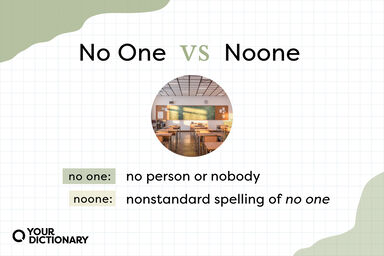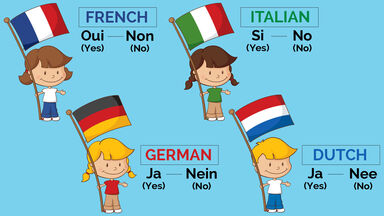No Definition
(slang) Placed before a word to indicate negation of that word.
- I (or we) cannot do it
Idioms, Phrasal Verbs Related to No
Origin of No
-
Middle English variant of non from Old English nān none ne not ne in Indo-European roots ān one one
From American Heritage Dictionary of the English Language, 5th Edition
Japanese nō talent, ability, No from Early Middle Chinese nəŋ be capable of, can, ability (also the source of Mandarin néeng)
From American Heritage Dictionary of the English Language, 5th Edition
-
Middle English from Old English nā ne not ne in Indo-European roots ā ever aiw- in Indo-European roots
From American Heritage Dictionary of the English Language, 5th Edition
Derived from the word no used in attributive phrases.
From Wiktionary
Abbreviation of French word numéro.
From Wiktionary





